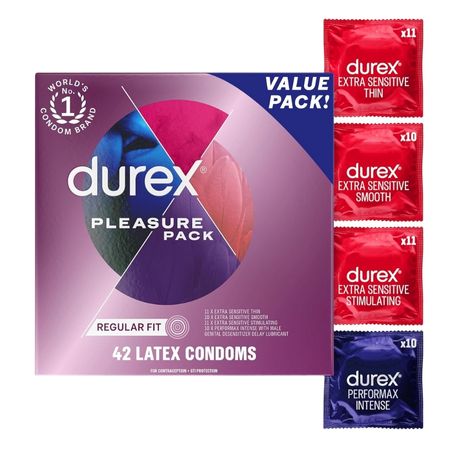
Tired of the same old “safe sex” talk? Us too. Sex should be fun, fulfilling, and yes, safe! But navigating risk and intimacy can feel confusing.
Here’s the good news: You’re not alone! We talked to real people about their experiences, the choices they make, and how they feel secure while getting hot and heavy.
Inside you’ll find:
- Honest confessions: From condom battles to navigating STIs in relationships, relatable stories that show you’re not the only one with questions.
- Communication hacks: Discover how to have “the talk” with your partner without the awkwardness and ensure you both are on the same page.
- Safer sex strategies: Learn about different approaches to protection and find what works best for you, from contraception to STI testing.
Ready to have a sex life that’s both passionate and protected? Dive in and see how to practice safe sex from these real people!
Related: Symptoms and Management of HPV During Pregnancy
How To Practice Safe Sex? Practical Tips & True Stories
Guide to Safe Sex Basics:
- Protect yourself from STIs and pregnancy: This is the overall goal of safe sex. The article covers various methods of protection and prevention.
- Know your options for birth control: Explore different birth control methods with your doctor to find the best fit for you.
- Get tested for STIs regularly: Early detection and treatment are crucial for your health and your partner’s.
- Use condoms every time: This is the most common and effective way to prevent STIs and pregnancy (except male condoms for pregnancy prevention).
- Communication is key: Talk openly with your partner about sexual history, preferences, and using protection.
- Consider abstinence: This is the only 100% guaranteed way to avoid pregnancy and STIs.
- Limit your number of partners: The fewer partners you have, the lower the risk of contracting an STI.
- Be monogamous: A committed, monogamous relationship offers the most protection from STIs, but only if both partners are faithful.
- Protect yourself during all sexual encounters: Use condoms or dental dams for oral sex and condoms for anal sex.
- Avoid douches and vaginal washes: They disrupt your natural bacteria which can actually help prevent infections.
- Use lubricants wisely: Opt for water- or silicone-based lubricants to avoid condom tears. Oil-based lubricants can damage condoms.
- Clean sex toys: Wash and sterilize them between uses to prevent spreading infections. Condoms can also be used on sex toys for additional protection.
- Safe sex is a healthy conversation: Talking openly with your partner about safe sex practices protects both of you.
Readers Experience

Honestly, condoms during oral sex? Not a fan. They just kill the mood, you know? But for everything else, they’re a must with new partners. That awkward first encounter? Definitely a condom situation.
But here’s the thing: monogamy? That changes things. Once I’m in a committed relationship where we’re exclusive, the conversation about ditching the condoms comes up. We both get tested, wait for the results (fingers crossed!), and then, well, let’s just say things get a whole lot steamier. It’s about trust, knowing you’re on the same page, and creating a safe space for some serious intimacy.
Emily, 28
Forget awkward silences! My secret weapon for safe sex is talking things out. Before things get too heated (think anything beyond making out or getting handsy), I have a frank conversation about safety. It’s all about vibes, really. How open is this person? Do they seem comfortable talking about past partners and getting tested? Basically, are they someone who takes charge of their health? The answer to those questions can make or break the night for me.
Jessica, 34

I’m all for condoms during penetrative sex with a new partner, but when it comes to oral, no way! It just kills the mood for me. If I’m with someone who’s been recently tested and isn’t having unprotected sex with anyone else, then I might consider skipping the condom. Otherwise, I stick to condoms until we’ve been together for at least three months and I feel confident about our mutual safety.
Sarah, 23
In my experience as a lesbian, my approach to safe sex has evolved over time. Cleaning sex toys after each use is a must for me. I used to be selective about who could go down on me, based on my level of interest in them, but I’ve become more open-minded about it as the years have gone by. These days, I’m pretty relaxed when it comes to hands – the more, the merrier!
Ashley, 31

I don’t typically ask my partners to get tested before we become intimate. Doing so would add a level of formality that takes away from the spontaneous connections I cherish. For penetrative acts other than oral, I always use condoms. However, if I’ve had an open conversation with someone about STI testing, birth control, and our views on safer sex, then I might consider skipping the condoms. Building that level of trust takes time, so it’s not something that happens often, but when it does, it’s a meaningful connection.
Hannah, 26
I live an ethically non-monogamous lifestyle, meaning I have multiple partners who are aware of each other’s presence in my life and bed. Recently, I was diagnosed with both HPV and HSV-2. Despite taking precautions, contracting these STIs was something I couldn’t entirely prevent. Avoiding sex altogether isn’t an option for me, given my high libido. While I’ve cleared the HPV, I still have genital herpes, which I disclose to all potential new partners. Surprisingly, this disclosure has been received well, much to my relief and happiness, as societal stereotypes often paint a much bleaker picture.
Samantha, 29
From past experiences and some missteps, I’ve realized the importance of setting clear boundaries and expectations before diving into conversations with a partner. To make sure I articulate myself well, I often rehearse the conversation in my head or jot down my thoughts beforehand. During the actual conversation, I’ll sometimes admit to feeling a bit nervous or awkward, which usually helps to lighten the mood and put both of us at ease.
Olivia, 27

Typically, I rely on birth control and skip condoms when I’m in a monogamous relationship. However, my boyfriend has HSV-2. While we opt for unprotected oral sex, including rimming, we always use protection during vaginal intercourse. Additionally, he takes antiviral medication daily.
Our intimacy feels incredibly passionate and safe because we’ve made informed decisions to protect ourselves and each other. While there’s a chance I could contract the herpes virus, it’s not something I dwell on during our intimate moments. If I did, it would mean we weren’t practicing the kind of safe sex that allows me to fully relax and enjoy myself.
Megan, 32
As a non-monogamous woman primarily attracted to men, I often encounter resistance from men when it comes to using condoms during sex. It’s frustrating to frequently be the one insisting on protection.
Admittedly, I sometimes struggle to maintain my own standards in the heat of the moment. In an ideal world, I’d only have unprotected sex with a monogamous partner I knew was STI-free. However, reality isn’t always perfect. Moments of excitement, lust, or even intoxication have led me to “slip up” on occasion. While I have an IUD that I trust for pregnancy prevention, I sometimes wonder if I’d be more cautious if the stakes were higher and I had to worry about unintended pregnancies.
Taylor, 24
I always use condoms and prioritize open, honest communication in my relationships. I was monogamous with my primary partner for several years, during which we stopped using condoms after getting tested and committing to each other. However, when we decided to explore non-monogamy, we agreed to use condoms with new partners and also between ourselves. I feel secure in this arrangement because I trust my partner to prioritize safety as much as I do. While it’s not ideal, it’s the decision we made to ensure our well-being.
Madison, 30
When I first started having sex, I was adamant about not engaging without proof of STD-free status and using condoms. Despite my precautions, I still contracted HPV. Nowadays, I lean towards monogamy mainly because I dislike using condoms (let’s be real, it’s just not the same).
However, committed relationships have their challenges, and sometimes you just want to have some fun. Now that I’m older, I’m strict about using condoms for any one-night stands involving vaginal intercourse. As for oral sex, I rely on visual inspections and skip the extra precautions. And when it comes to anal sex, I keep that off the table entirely.
Alyssa, 25

Growing up in a progressive community and jamming to TLC, safe sex was ingrained in me long before I became sexually active. The message was clear: only fools skip condoms, and if you do, you’re basically signing up for herpes or AIDS and becoming a social outcast. I feared that contracting an STI from someone I cared about but wasn’t “the one” would make me unworthy of love and destined to be alone. It took years to shake off that mindset.
Nowadays, it’s crucial for me to have open conversations about STI statuses before things get too intimate. If I’m too uncomfortable to have that talk, then maybe we shouldn’t be getting physical in the first place, you know? I feel most at ease when I know I’m being safe. So far, I haven’t encountered a partner with an STI (as far as I know). But if I did, and they were someone special to me, I’d hope I’d have the empathy and love to work through it together. That’s all I’d ask for if roles were reversed.
Natalie, 33
I’m non-monogamous, which means I prioritize the safety and needs of all my partners when deciding on sexual activities with new people. Out of consideration for my other partners, I opt not to engage sexually with anyone who discloses a positive STI status. Alongside using condoms for penetrative sex, open communication is key to maintaining safer sex practices for me. I regularly check in with my partners, and these conversations always include discussions about our sexual boundaries.
Grace, 22
Related: STDcheck.com Review: Confidential Testing & Fast Results (2024 Update)
Conclusion
So, there you have it! From communication strategies to choosing the right protection, these tips from real people can empower you to have a safe and satisfying sex life. Remember, safe sex isn’t just about avoiding risks; it’s about creating an environment of trust and respect. Don’t hesitate to talk to your partner(s) about your needs and desires, and consult a healthcare professional if you have any questions. With open communication and knowledge, you can take control of your sexual health and explore intimacy with confidence. After all, a healthy sex life is a happy sex life!
Stay Protected with These Reliable Condoms













